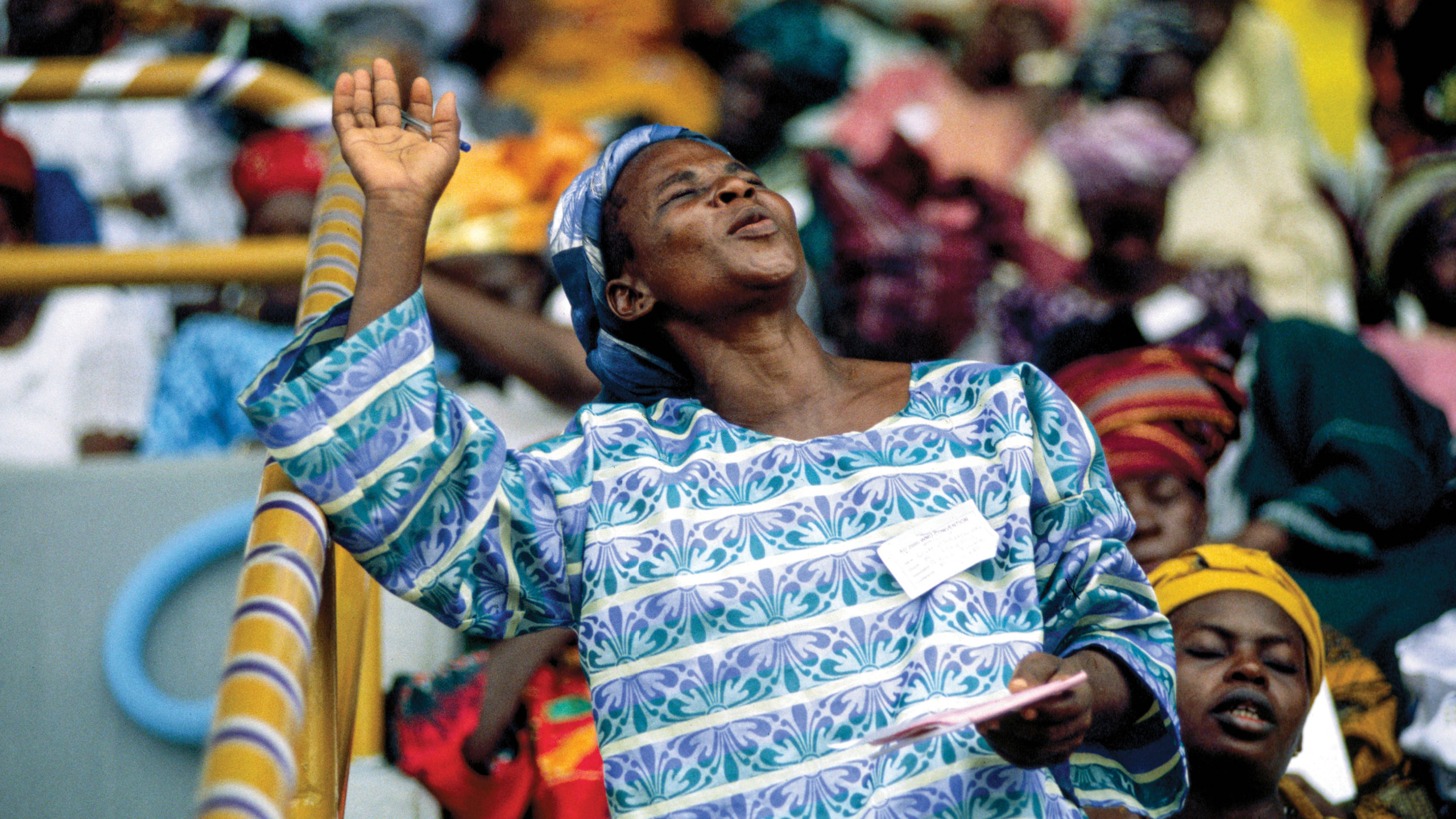Developing relationships on local, state and federal levels is critical to addressing religious persecution in Nigeria, according to several religious freedom observers.
The United States Commission on International Religious Freedom recently hosted a virtual conversation — “Engaging State and Local Government in Nigeria to Protect Religious Freedom” — moderated by Dwight Bashir, USCIRF director of outreach and policy.
Panelists included Tony Perkins, USCIRF vice chair; Frederick A. Davie, USCIRF commissioner; Oge Onubogu, director of West Africa programs for the U.S. Institute of Peace; and Nnamdi Obasi, senior adviser for the International Crisis Group.
“USCIRF has been reporting on Nigeria for over 15 years, and since 2009 has recommended that the State Department designate Nigeria a “country of particular concern” for engaging in and tolerating systematic ongoing and egregious violations of international religious freedom,” Bashir said.
Country ‘of concern’
In December 2020, the U.S. State Department finally did so, making Nigeria “the first secular democracy designated as such,” he said.
Davie recounted three separate Boko Haram attacks in December: two on Christmas Eve and another the day after Christmas. A dozen people were killed and hundreds were kidnapped.
Kaduna, a state in the north central region of Nigeria, “experienced a near tripling of violent incidents in the past year with roughly 400 persons abducted for ransom and the displacement of 50,000 people,” Davie reported.
“While the drivers of this violence are many and complex, there can be no doubt that Christian communities have borne the brunt of the violence in a state led predominantly by … Muslim leadership,” said Davie, who referenced inequitable curfews and leadership woes.
Kano is among 12 northern states where state-sanctioned Sharia courts operate alongside secular courts.
In August 2020, Davie said two men, ages 22 and 13, were convicted of blasphemy by a Sharia court, igniting an international debate. Judges at the secular branch of the state’s high court overturned the verdicts.
Muslims and atheists are also being persecuted.
Davie said Kano State authorities collaborated with Kaduna officials to detain and arrest Mubarak Bala, an atheist and the president of Nigeria’s Humanist Association.
“For months after arrest, [Bala] was denied access to his legal team,” Davie said. “Finally, a federal court ruled detention was unconstitutional and ordered him to be released (in December), yet more than a month after that verdict, he still remains detained by Kano State Police.”
Nigeria is a complex country, said USIP’s Onubogu.
“We need to approach our understanding of Nigeria with some humility,” she said, considering how to combine top-down accountability with bottom-up innovation, learning and accountability.
“For us at USIP, we’ve seen that it’s extremely important to build or improve on both the horizontal and vertical connections that exist between community systems and key response government actors at the state level,” Onubogu said.
Better relationships at all levels mitigate violence in general and improve accountability, she said.
Leaders also need to adapt their work for short-term conflicts while also strategizing for the long term.
Young democracy
ICG’s Obasi stressed that the Nigerian constitution guarantees religious freedom for all, not just Christians. As a relatively young democracy, democratic values have not trickled down to the local level yet.
“Leaders can be central driving factors in stoking, enabling … violations of religious freedom,” he said.
In some areas, clerics are required to obtain preaching permits and/or gathering permits. Some local governments control these groups by withholding building permits or with zoning regulations.
“Governments are not doing enough to address the underlying economic, political, environmental causes that trigger and drive violence,” Obasi said. “They are not doing enough at the state level to secure federal government commitment to protect communities.”
Voicing concerns
More people need to be willing to voice concerns over abuses and discrimination, Obasi said, and the government needs to be pushed to ensure protection for communities.
Nigeria’s federal police force is overwhelmed by the problems facing local communities. And with so many displaced people, Obasi indicated more could be done with humanitarian efforts.
Onubogu added that improving access to education is another key, but “for it to be sustainable, it has to be owned by the local community.”
A USCIRF report released in February estimates that in northern Nigeria, conflict with groups like Boko Haram and the Islamic State in West Africa Province has resulted in the deaths of more than 37,500 people since 2011.
“There is a reasonable basis to believe that these groups have committed war crimes and crimes against humanity,” the report said.
In December, the International Criminal Court concluded a decade-long preliminary investigation into crimes against humanity and war crimes. The investigation involves Boko Haram and Nigerian Security Forces.
Fatou Bensouda, ICC prosecutor, stated “that the statutory criteria for opening an investigation into the situation in Nigeria have been met.”
ICC indicated there might be delays, however, due to COVID-19 constraints and backlog in the court’s system






Share with others: